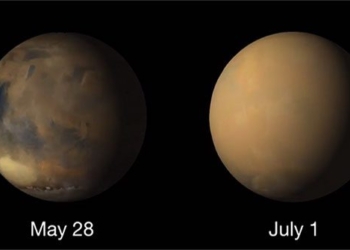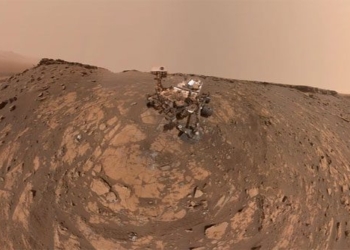Elon Musk’s plan for immigration to Mars has always attracted significant attention, and there are many different speculations about the purpose and intentions behind this initiative.
Elon Musk has nurtured the dream of sending humans to Mars for many years. However, some people believe this is merely a business exaggeration from Musk and that he aims to generate additional profits through this plan, while others view it as a mission for humanity, emphasizing the need to explore the universe and seek new resources and living spaces.
So what exactly lies behind Musk’s plan for immigration to Mars? Is it a commercial benefit or a human mission?

Elon Musk has nurtured the dream of sending humans to Mars for many years.
The plan to colonize Mars is not a random idea or a reckless endeavor. On the contrary, it is a thoughtful consideration by humanity about the future and reflects our desire to explore the endless universe, seek new resources, and expand human living space.
If we can successfully establish a stable human community on Mars, it will mark a significant milestone for humanity in exploring the universe and possibly discovering new habitable spaces.
Mars is one of the closest planets to Earth in the Solar System, with many natural cycles and topographical features similar to those of Earth. More importantly, Mars has resources such as water, carbon dioxide, and oxygen that are vital for human survival.
These characteristics make Mars the top choice for those seeking a second home.
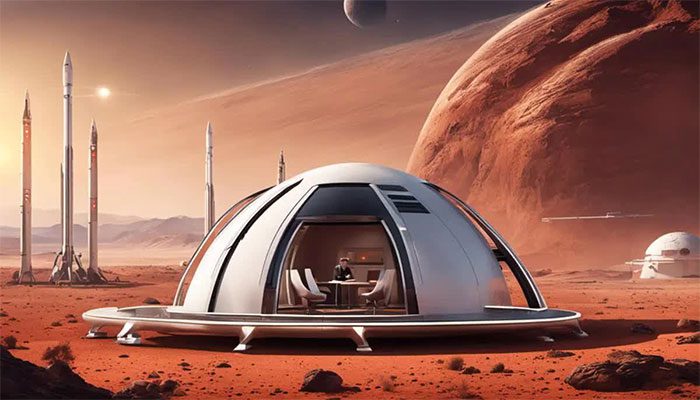
Mars is one of the closest planets to Earth in the Solar System. (Illustration: Zhihu).
Elon Musk has mentioned his hope to send 1 million people to Mars within this century. Musk believes that doing so would provide humanity with a “backup plan” in case of disasters or wars on Earth.
Notably, Musk is not the only one with dreams of conquering Mars. NASA, the European Space Agency, and the China National Space Administration also have their own plans for exploring and landing on Mars.
Additionally, there are several companies and private organizations actively involved in the Mars immigration plan. These entities have different motives and goals but share a strong interest and enthusiasm for the Mars immigration initiative.
Overall, they believe that the plan for immigration to Mars is not only a scientific and technological challenge but also a turning point in the development of human history and culture.

Immigration to Mars is a turning point in the development of human history and culture. (Illustration: Zhihu).
Musk’s plan for migrating to Mars aims not only to explore the universe and seek new resources but also to promote the development and advancement of human science and technology.
Mars is a harsh environment, and humans will need to overcome many difficulties and challenges if they wish to survive there. For example, Mars has a very thin atmosphere, lacks an ozone layer and a magnetic field like Earth, so humans need to find effective ways to protect themselves from solar winds and cosmic rays.
Moreover, the Martian climate is also extremely harsh, with very low temperatures, significant temperature differences between day and night, and strong radiation. Humans will need to develop effective adaptation methods to maintain physical health and mental balance.
Without a magnetic field on Mars, humans will need to find an efficient living space that provides comfortable air pressure and temperature. These are technical challenges that humanity must overcome and will require extensive research and development. Musk believes that through this plan, humanity can achieve significant technological breakthroughs and promote the development and advancement of human science and technology.

Mars is a harsh environment for survival. (Illustration: Zhihu).
Musk once stated, “I think we should have a very positive goal, which is to make the colonization program of Mars a catalyst that allows us to do things we would not normally do.”
What Musk means by “things we would not normally do” encompasses many aspects. For instance, to realize the immigration plan to Mars, we need to develop advanced and efficient rockets and spacecraft, smarter and more flexible robots, safer and more reliable communication systems, energy-efficient and environmentally friendly power systems, as well as healthier and more comfortable living conditions. These represent significant advancements in human scientific and technological capabilities.
At the same time, Musk hopes to inspire human innovation and courage through this plan, allowing more people to engage in the process of technological innovation and exploration. This is the attitude of Musk’s supporters. But what about those who hold opposing views?
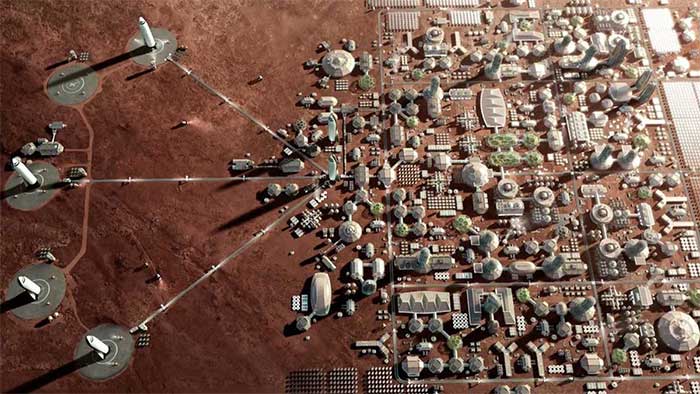
Some believe that humanity’s technology is not yet developed enough to settle on Mars. (Illustration: Zhihu).
Space exploration holds immense significance for human progress and development. However, some argue that humanity’s technology is not yet sufficiently advanced at this stage, and the rush to migrate to Mars is merely a tool for profit. They believe that living conditions anywhere on Earth are better than on Mars. Why would ordinary people take risks on Mars when the technology is still immature?
Given the current level of technological development, intelligent individuals like Musk should know better than anyone that immigration to Mars is still in a scientific exploration phase and is virtually unfeasible from a commercial standpoint.
Moreover, some believe that Musk’s immigration plan for Mars is merely a facade for something else. After all, Musk is not a military commander but a capitalist; his Mars development project is essentially a business plan where passengers are required to pay high ticket prices—potentially reaching millions of dollars.
As safety for passengers cannot currently be guaranteed, and there are virtually no return flights from Mars, humans may be deceived into going to Mars only to perish under the guise of dedicating themselves to science.
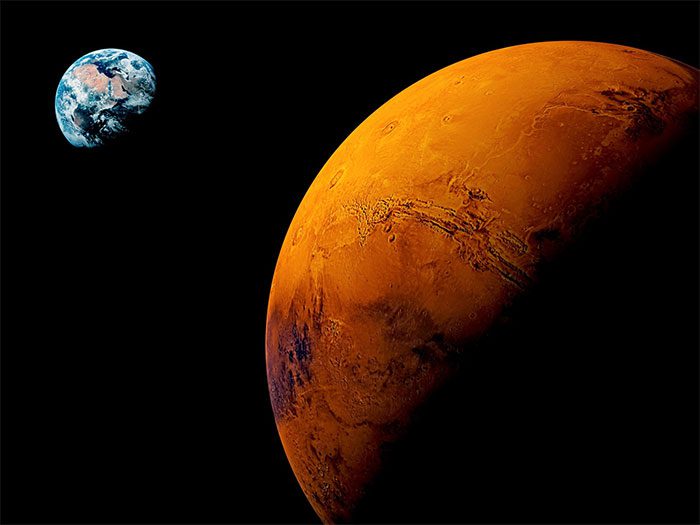
Currently, safety for passengers cannot be guaranteed, and there are virtually no return flights from Mars. (Illustration: Zhihu).
Immigrating to Mars is not an easy task for humanity. It requires immense commitment and sacrifice, as well as long-term effort and patience. Given that Mars is very far from Earth, with current technology, a round trip could cost tens of billions of USD and take many years.
If Mars can be transformed, why not focus on protecting Earth and restoring the Earth’s environment? If we cannot even protect Earth, how can we talk about transforming Mars?








































